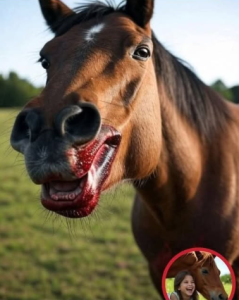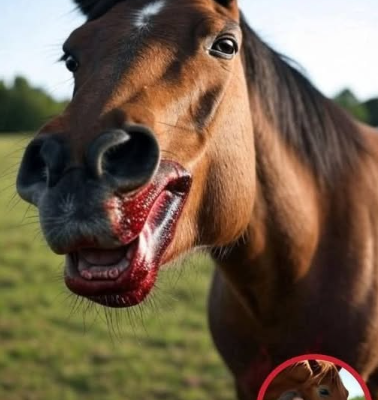The Horse That Devoured His Duty
In the village of Krahom Thmei, where the dust never settled and the wind carried whispers of old sins, there lived a horse unlike any other. He was not bred for war, nor for labor, nor for the pomp of royal parades. He was born beneath a blood moon, in the shadow of a banyan tree that had never borne fruit. His coat was the color of ash, his eyes like twin wells—deep, dark, and bottomless.
They named him Vichea, which meant “destiny,” though no one dared speak it aloud.
Vichea was raised by a boy named Dara, whose father had vanished in the war and whose mother spoke only in riddles. Dara was quiet, thoughtful, and often seen sketching spirals in the dirt with a stick. He believed the horse was not just an animal, but a vessel—something ancient wearing the skin of the present.
The elders warned Dara not to grow too close. “That horse,” they said, “devoured his duty.”
No one explained what that meant. It was a phrase passed down like a curse, a warning wrapped in metaphor. But Dara, drawn by the horse’s silence and sorrow, ignored them.
One night, under a sky bruised with thunder, Dara dreamt of a battlefield. Vichea stood at its center, surrounded by broken spears and faceless men. His mouth was red—not with blood, but with something darker, something older. Duty. Obligation. The weight of expectation. He had consumed it all.
When Dara awoke, he found Vichea standing at the edge of the forest, staring into the trees as if waiting for something to emerge.
That morning, the village awoke to find the temple bell missing. The bell had hung for centuries, rung only during births, deaths, and the rare eclipse. Its absence was a wound. The villagers searched, but found only hoofprints leading into the forest.
They blamed Vichea.
“He’s cursed,” they said. “He’s swallowed what binds us.”
Dara defended him, but the village turned cold. Children stopped playing near him. Women clutched their necklaces when he passed. Even the monks refused to chant near his stable.
But Dara knew the truth was more complicated.
He began to follow the hoofprints, deeper into the forest each day. What he found was not destruction, but transformation. Trees bent in strange shapes, as if bowing. Stones arranged in spirals, echoing the ones he drew as a child. And in the center of it all, the temple bell—suspended from a branch, ringing softly in the wind.
Vichea stood beneath it, unmoving.
Dara approached. “Why did you take it?”
The horse turned, and though he did not speak, Dara understood.
The bell was a symbol of duty. It marked time, tradition, and the weight of expectation. Vichea had devoured his own duty long ago—on a battlefield where he was meant to carry a dying general to glory. Instead, he had turned away, galloped into the forest, and disappeared. He had chosen freedom over fate.
And now, he was offering Dara the same choice.
The boy stood beneath the bell, listening to its soft chime. He thought of his father, who had marched into war because it was expected. He thought of his mother, who spoke in riddles because truth was too heavy. He thought of the village, bound by rituals that no longer made sense.
He reached up and silenced the bell.
That night, Dara returned to the village and told them what he had seen. Some wept. Some raged. But a few listened.
The elders demanded the horse be banished. “He’s a threat to order,” they said.
But Dara stood firm. “He’s not a threat. He’s a mirror.”
The village split. Some followed Dara into the forest, seeking new paths. Others clung to the old ways, ringing a makeshift bell fashioned from a cooking pot.
Years passed.
Dara became a storyteller, weaving tales of the horse who devoured his duty. He spoke of freedom, of choice, of the courage to walk away from inherited burdens. Vichea remained by his side, growing older but never slower.
One day, a child asked Dara, “Did the horse ever regret it?”
Dara looked at Vichea, who stood beneath the banyan tree, now blooming for the first time.
“No,” he said. “He didn’t devour his duty. He digested it. And from it, he grew something new.”


